The 10,000 Litre Fixed Capacity Conical Bottom Tank is built from food-grade stainless steel, this tank provides secure, hygienic, and efficient storage for olive oil, wine, and other liquid foods. The conical bottom design ensures complete drainage and clean separation of sediment, making it ideal for professional processors handling large volumes.
| Specification | Value |
|---|---|
| Capacity | 10,000 L |
| Bottom Type | Fixed conical |
| Construction | Stainless Steel AISI 304 (food grade) |
| Valves | Hygienic butterfly discharge & racking valves |
| Accessories | Top manhole, nitrogen nipple, sight gauge |
| Support | Welded stainless steel legs |
For large-scale olive oil mills, wineries, and food processors, this 10,000L conical bottom stainless steel tank ensures product safety, maximises yield, and simplifies workflow. Its food-grade construction maintains hygiene, while nitrogen blanketing capability protects against oxidation. The conical bottom design delivers complete drainage, reducing waste and supporting consistent quality batch after batch.
Q: Why are conical bottom stainless steel tanks recommended for large-volume olive oil and wine storage?
Large-volume liquid storage presents challenges with sediment management, product transfer, and maintaining consistent quality. Flat-bottom tanks often leave residue behind, which can lead to contamination, flavour loss, or difficult cleaning. This becomes more significant as capacity increases, where even a small amount of waste represents a larger financial and quality loss.
The 10,000L fixed capacity conical bottom tank addresses these issues by funnelling liquids and solids separately. Sediment collects at the lowest point, while the racking and discharge valves allow clean product transfer. This design supports nitrogen blanketing for extended preservation and ensures that producers recover more of their oil or wine without compromise.
Key advantages include:
The result is higher productivity, longer product stability, and consistent quality across each harvest or production cycle.
Sydney, Australia — October 20: In recent days, Sydney welcomed a delegation from the International Olive Council, comprising Maria Juarez, Head of Promotion and Economic Affairs; Dr. Imene Trabelsi Trigui, Head of Promotion; and Dr. Wenceslao Moreda, Principal Scientist and IOC specialist.
Their visit was intended to deliver a program of events in Sydney, including a two-day technical tasting workshop and a formal networking cocktail reception.
The objectives of these events were twofold. The workshop sought to strengthen collaboration between Australian growers, producers, and the International Olive Council, while the networking cocktail reception united key stakeholders — including government officials, media representatives, chefs, and producers — in a dynamic exchange. A highlight of the evening was the introduction of the newly appointed Ambassador, Mark Olive, who captivated guests with a specially crafted menu featuring Australian Indigenous ingredients such as saltbush, kangaroo, bush tomato, and native peppers, elegantly paired with a selection of Australian Extra Virgin Olive Oils.
“Advancing sustainability in olive oil production is essential to tackling climate change. We encourage producers to embrace sustainable methods that not only reduce environmental impact but also help optimize production costs. Australia’s strengthened partnership with the IOC represents a step toward a healthier and more sustainable future. Our mission is to promote greater awareness of olive oil’s benefits and sustainable practices, fostering improved and healthier consumption.” — Dr. Imene Trabelsi, Head of Promotions, International Olive Council
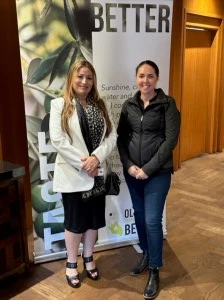
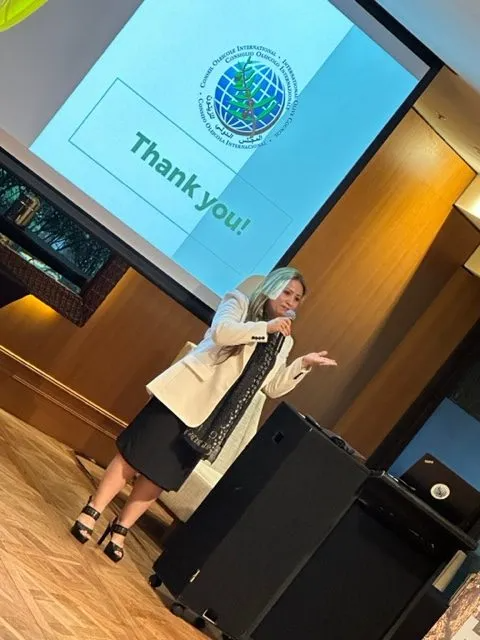
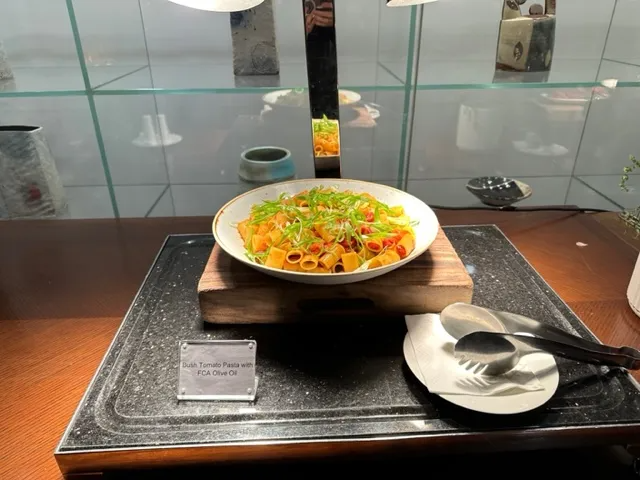

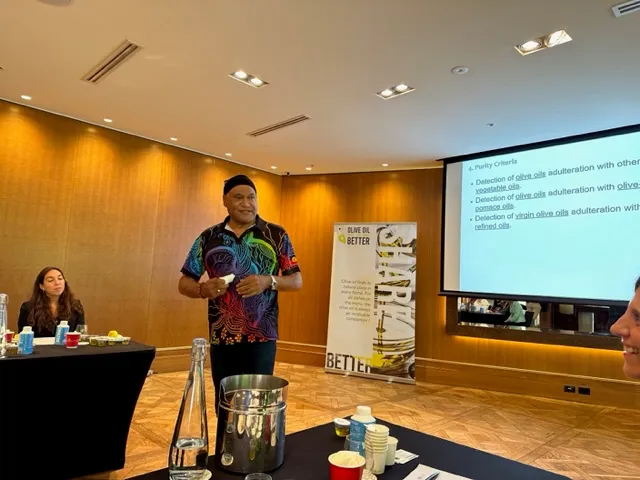
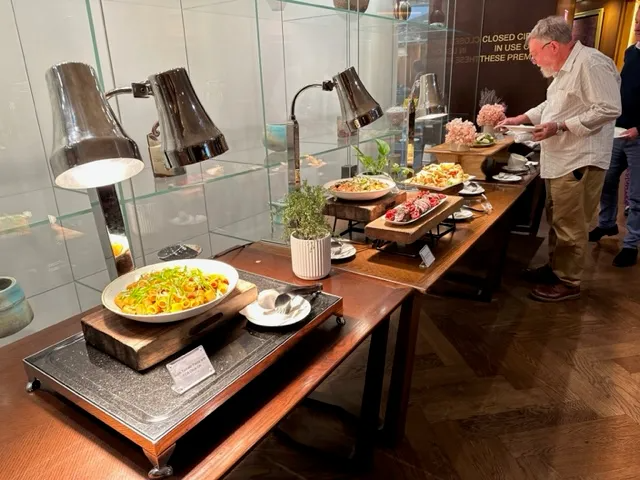
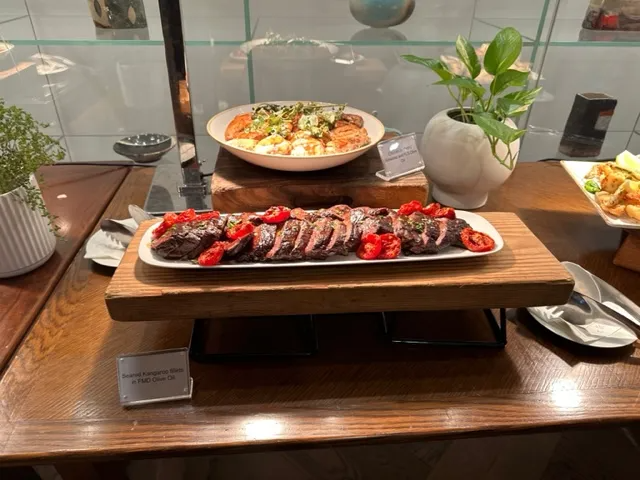
The two-day technical workshop was led by Dr. Wenceslao Moreda, an IOC specialist and Chair of the eWG of the Codex Committee on Fats and Oils (CCFO). A distinguished member of the Spanish National Research Council, Dr. Moreda holds an impressive record of over 75 research publications dating back to 1995. The opening day of the workshop focused on sensory evaluation, addressing both the physical and psychological dimensions of the organoleptic process while emphasizing the importance of proper production conditions in compliance with the rigorous standards established by the International Olive Council. The discussions provided valuable insight into the rationale behind these standards and the allowances for specific variances, reinforcing their role as the overarching global benchmark.
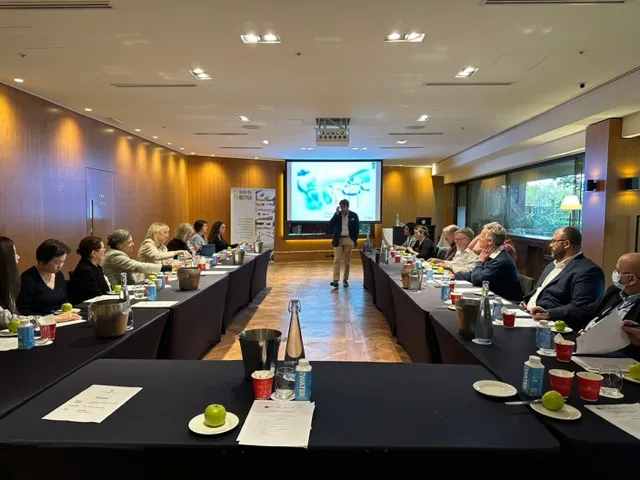
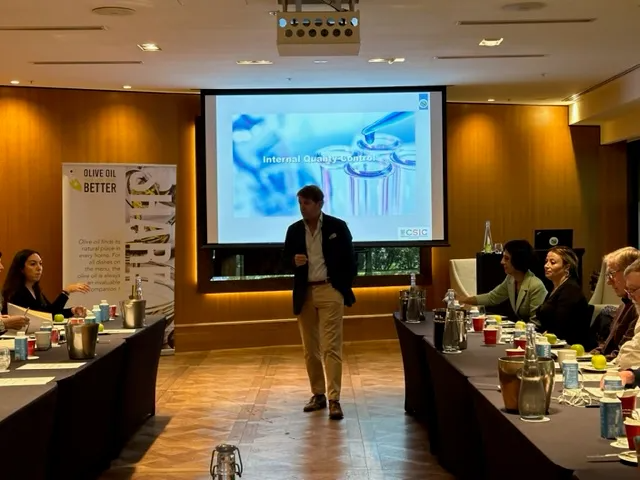
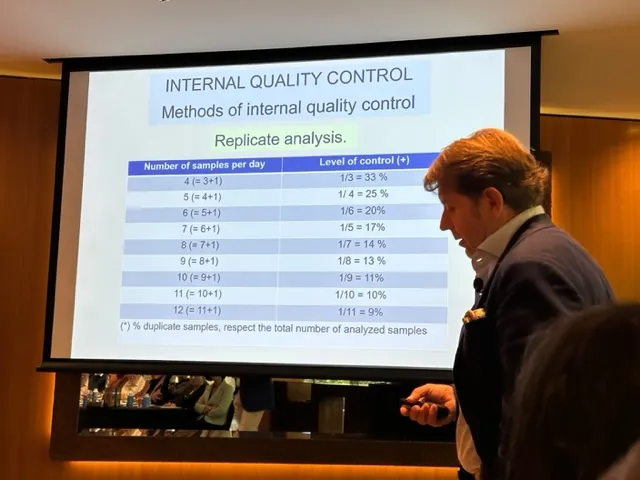
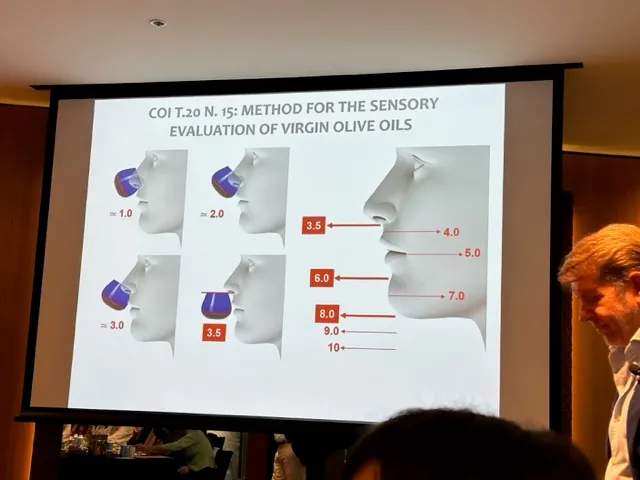
On the second day, the workshop focused on the quality and purity of Extra Virgin Olive Oil, examining internal quality control measures and evaluation criteria. The program concluded with an in-depth review of health-related parameters associated with olive oil, attended by nutrition experts. The breadth of technical knowledge shared proved highly valuable, offering participants a holistic understanding of the journey from production to final product from an organoleptic perspective. During the session, the IOC also announced the development of a new website dedicated to communicating the extensive health benefits of olive oil.
The International Olive Council continues to be a steadfast leader in shaping the global olive oil sector, establishing standards and fostering international collaboration essential to the industry’s advancement. As these remarkable events draw to a close, they leave a lasting impression of unity, progress, and shared commitment to the treasured ‘liquid gold’—extra virgin olive oil.
Beyond celebrating the richness and versatility of olive products, these gatherings underscored the critical importance of cooperation and knowledge exchange within the global olive community.
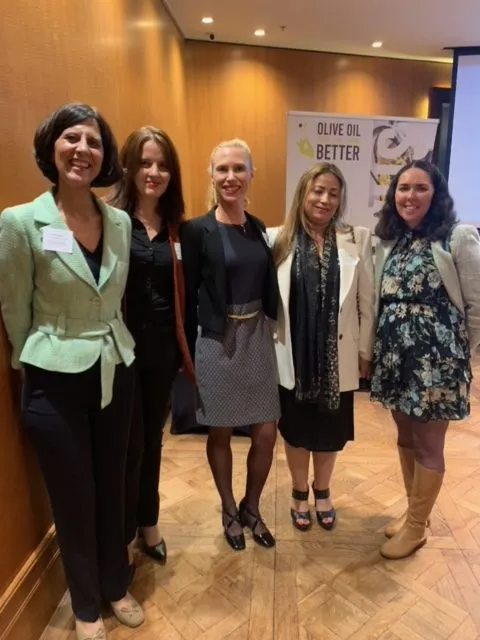
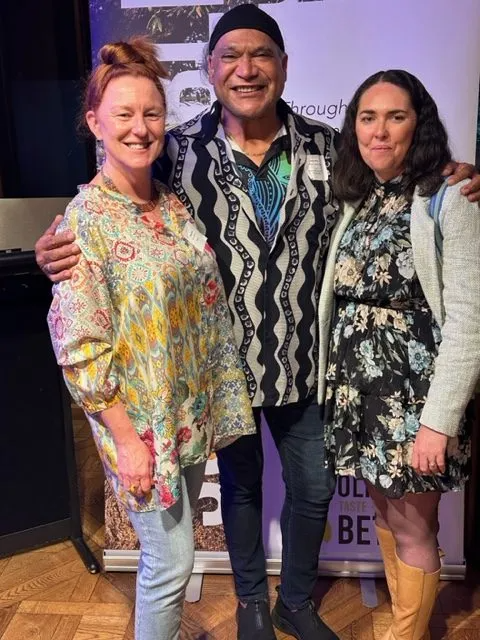
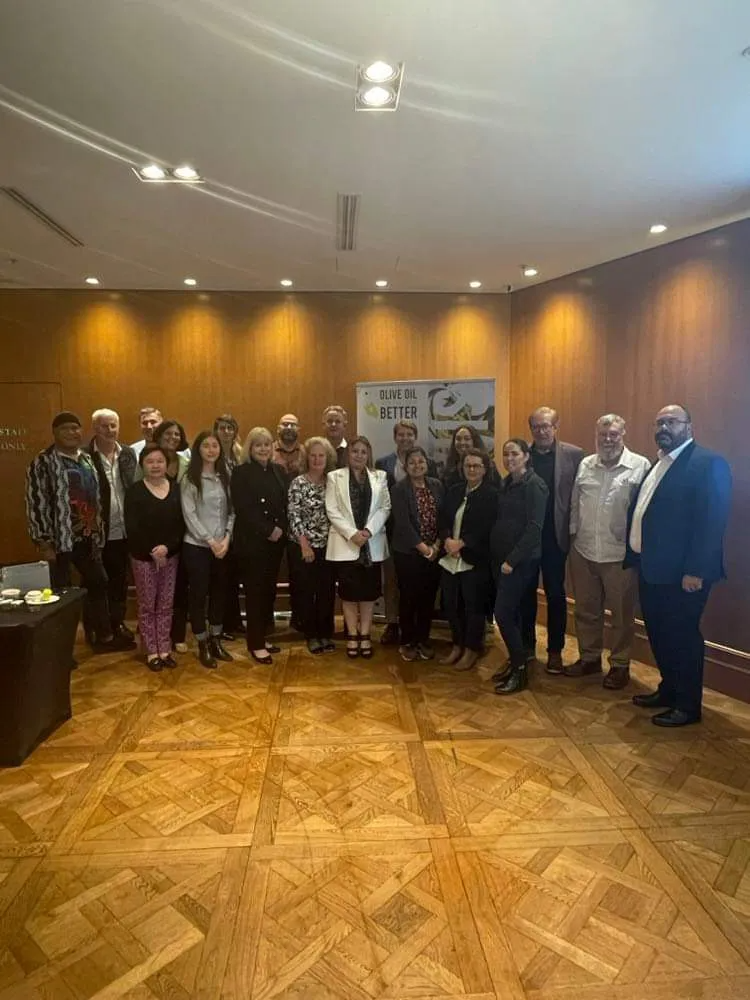


The International Olive Council (IOC) functions as the leading intergovernmental organization responsible for establishing the regulatory framework governing the global olive oil sector. Although Australia is not yet an official IOC member, it actively supports the organization by assisting emerging industries in adopting and applying international standards. The cooperation demonstrated during recent events underscored the IOC’s global significance and lasting impact.
The IOC also recognizes the diversity of growing conditions worldwide, which may lead to parameter variations outside of established guidelines in certain producing regions. Importantly, the IOC administers the only legally binding international standard for olive oil, reinforcing its critical role from a legislative and regulatory perspective. Complementing this, the Australian Olive Oil Association (AOOA) is acknowledged for its collaborative work with the IOC, further highlighting the importance of sustained international cooperation within the sector.
IOC Membership Process
The International Olive Council maintains strict criteria for membership. Participation is reserved exclusively for governments or international organizations empowered to negotiate, conclude, and implement international agreements, particularly those relating to commodities.
When a country seeks to join the IOC, its government must formally apply to the Council of Members, typically through its Ministry of Foreign Affairs, another relevant ministry, or its Embassy in Spain. The Council then reviews the application, establishes terms and conditions of accession — including financial contributions to the IOC budget — and sets a deadline for depositing the instrument of accession with the Secretary-General of the United Nations in New York, who serves as the official depository of the Agreement.
Upon successful deposition, the applicant nation becomes a full IOC Member. Private companies and individuals are not eligible for membership. Additionally, all European Union Member States are automatically represented in the IOC through the EU’s membership, without the need for separate applications.
In Australia’s case, stronger collaboration between national associations, government agencies, and the IOC will be essential for achieving closer alignment with international standards. Leadership from within the Australian olive oil industry itself will be critical in driving forward discussions on potential membership.
IOC Health Website
The IOC has recently launched a new website serving as a comprehensive reference hub on olive oil and health.
IOC Standards, Methods, and Guidelines
The IOC continues to provide the latest updates on trade standards for olive oil and table olives, as well as official testing protocols, sensory (organoleptic) assessment methods, and quality management practices.
INDUSTRY UPDATE: AUSTRALIAN OLIVE GROWERS 2023 SEASON

“Earlier in the season, the industry was anticipating an excellent harvest,” Mr Valmorbida said. “However, persistent cold weather and rainfall during May and June, particularly across south-east Australia, have taken their toll.”
Although the Australian olive harvest is not officially recorded each year, the AOOA estimates that the 2023 season will produce between 18 and 19 million litres of olive oil from roughly 110,000 to 120,000 tonnes of olives.
This compares with last year’s output of 14–15 million litres and the record-breaking 2021 crop, which yielded 20–22 million litres of oil.
Mr Valmorbida explained that these fluctuations reflect the biennial cycle of olive production. “This is what we call an ‘on’ year for olives. While we were expecting an excellent yield earlier in the year, harvest results always depend heavily on weather conditions, and this season has been quite mixed for many growers.”
“The oil yield per tonne is noticeably lower than average due to the cooler growing period,” he added, “but the quality of the oil remains excellent because the fruit had more time to ripen gradually.”
Around the world, olive oil prices have reached record highs in Spain, Italy, and Greece, driven by a severe global shortage of olive oil. Hot temperatures, minimal rainfall during key stages of the growing season, and extended drought conditions across southern Spain have drastically reduced European output. In addition, the ongoing conflict in Ukraine has disrupted the production of vegetable and seed oils, increasing global demand for olive oil as an alternative.
In Australia, growers are currently achieving $6–$7 per litre for larger commercial volumes of olive oil, with even higher prices for export batches, premium small-lot oils, and organic extra virgin olive oil.
“With this global shortage, some of the larger Australian producers are in a strong position to export olive oil to Europe and receive competitive returns,” Mr Valmorbida said.
“While that’s encouraging news for the Australian olive oil industry, globally the sector is under pressure,” he continued. “There’s currently a 35–40 percent shortfall in available products, combined with escalating packaging costs, especially for glass and tin materials.”
“These factors, along with rising labour and energy expenses, are leading to higher retail prices for consumers,” he noted.
Mr Valmorbida concluded with a reminder to consumers: “It’s important to remember there’s no product quite like olive oil—its distinctive flavour, health benefits, and culinary versatility make it irreplaceable.”
#oliveharvest2024 #harvest2024
The Australian Olive Oil Association (AOOA) is a not-for-profit, independent organisation dedicated to promoting the quality, integrity, and fair trade of olive oil in Australia. Membership is open to olive oil producers, distributors, industry stakeholders, and related organisations.
Since 1993, AOOA has been a signatory to the International Olive Council (IOC) global quality control program. Each year, the Association coordinates independent laboratory testing of leading olive oil brands to ensure compliance with IOC standards.
In addition, the AOOA Certified Quality Seal Program upholds even stricter quality criteria, allowing AOOA-member products to distinguish themselves in both domestic and international markets.
For more information:
Jan Jacklin, General Manager, Australian Olive Oil Association gm@aooa.com.au www.aooa.com.au
Photo credit: Julia, olive grove – Kyneton Olives” by avlxyz is licensed under CC BY-SA 2.0. To view a copy of this license, visit: https://creativecommons.org/licenses/by-sa/2.0/?ref=openverse